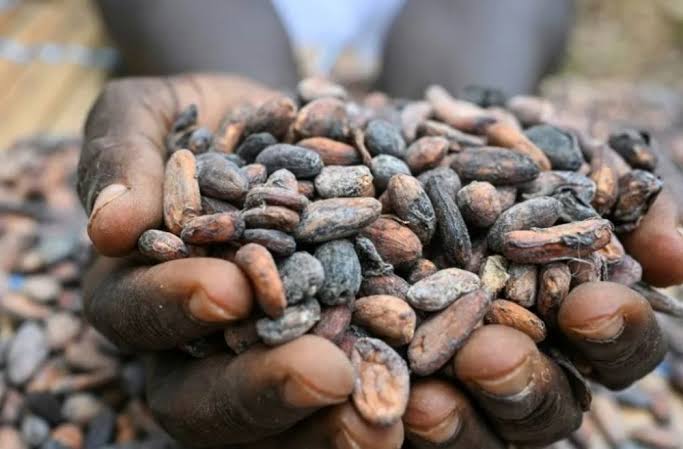Cocoa prices have surged, recently settling at $9,187 per ton on the New York Commodity Exchange, and Nigeria is positioning itself to benefit. In a bold move to reduce its reliance on crude oil revenues, the country is turning its focus to cocoa, one of its key agricultural exports.
Investors are showing renewed interest in cocoa, especially as Nigeria sets ambitious plans to boost production. According to the United Nations Food and Agriculture Organization (FAO), Nigeria produced over 280,000 tons of cocoa in 2023, ranking as the seventh-largest producer globally.
Now, the government aims to increase output to 500,000 tons in the 2024–2025 season, trailing only behind Ivory Coast, Ghana, and Indonesia. This comes at a time when global cocoa prices are soaring—rising from around $2,200 per ton in 2022 to near $13,000 in 2024—driven by poor weather and disease outbreaks affecting crops in top-producing countries.
To support its cocoa ambitions, Nigeria has attracted a $40.5 million investment from British International Investment and Johnvents Group. The funding will help Premium Cocoa Products Ile-Oluji, a subsidiary of Johnvents, boost its annual capacity from 13,000 to 30,000 metric tons—positioning Nigeria to gain stronger footing in the global market.
In addition, the federal government is proposing the creation of a National Cocoa Management Board to oversee cocoa production, processing, and marketing. This move mirrors similar structures in Ghana and Ivory Coast, where centralized boards have helped coordinate the cocoa sector more efficiently.
Senator Abubakar Kyari, Minister of Agriculture and Food Security, emphasized that the board would work closely with local farmers and stakeholders. Membership in the Cocoa Farmers Association of Nigeria has already surpassed 10,000.
As demand for chocolate and cocoa products remains strong, especially in global markets, Nigeria sees an opportunity to not just supply raw cocoa but to process and export finished products. The Federal Executive Council has approved a long-term cocoa growth plan with over $300 billion in projected investment over the next ten years.
Despite a recent dip from the 2024 price peak, cocoa remains much more valuable than in previous years. Major brands like Nestlé are preparing to raise prices on chocolate-related products starting in June, underlining how the global supply crunch is influencing consumer goods.
With strategic planning and investment, Nigeria hopes to establish itself as a major player in the cocoa world—and give its economy a much-needed boost.

